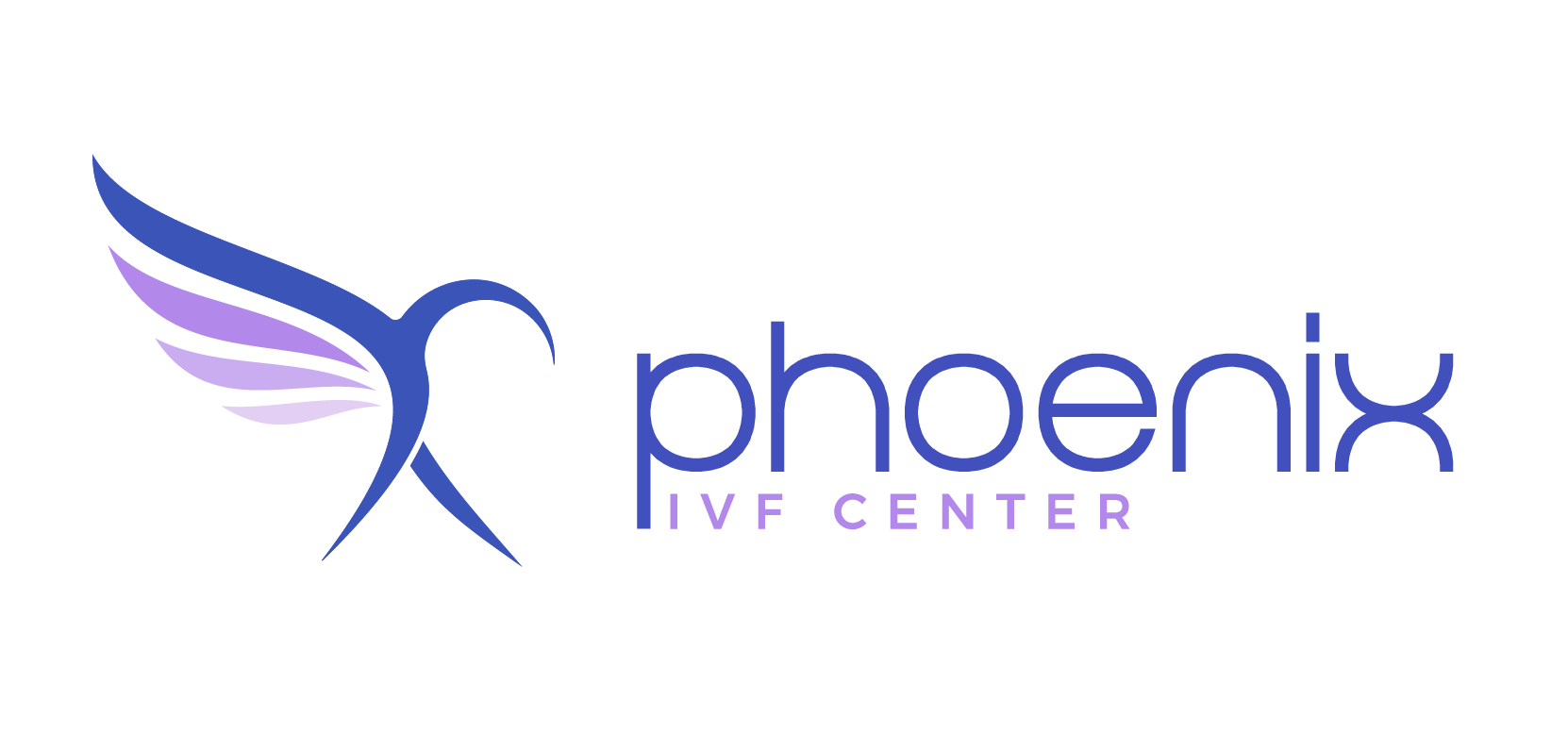IVF Treatment: All Your Questions Answered
Embarking on an IVF journey can be both an exciting and challenging experience. At Phoenix IVF Center, we understand that you may have many questions, and we are here to guide you every step of the way. In this blog post, we will explain the IVF process, answer the most frequently asked questions, and provide valuable information to help you feel informed and confident.
What is IVF and How Does It Work?
IVF, or in-vitro fertilization, is a medical process where eggs are fertilized by sperm outside the body in a laboratory, and the resulting embryo is then transferred to the uterus to achieve pregnancy. This method is often used for couples experiencing infertility or when other treatments have failed. At Phoenix IVF Center, we have been successfully helping couples build their families with innovative techniques and compassionate care for over 30 years.
How Long Does IVF Treatment Take?
One of the most common questions is about the duration of the treatment. An IVF cycle typically takes 4-6 weeks, from the start of ovarian stimulation to embryo transfer. While this may seem like a long time, at Phoenix IVF Center, we tailor every step to your individual needs, ensuring your treatment progresses as efficiently and comfortably as possible.
What Should I Expect at My First IVF Consultation?
The first consultation is a crucial part of your journey. At Phoenix IVF Center, we believe in providing personalized care. During the consultation, our specialists will review your medical history, perform necessary tests, and present your treatment options. The initial visit can feel overwhelming, but our team is here to ensure you feel comfortable and supported from the moment you walk through our doors.
What Are the Steps in the IVF Process?
The IVF process is divided into several key steps:
- Ovarian Stimulation: Hormonal medications stimulate the ovaries to produce multiple eggs. This process typically lasts 10-14 days, monitored by ultrasounds and blood tests to ensure optimal egg development.
- Egg Retrieval: Mature eggs are collected from the ovaries during a minor surgical procedure performed under mild anesthesia. Guided by ultrasound, this procedure takes about 20-30 minutes with a quick recovery time.
- Fertilization: Collected eggs are fertilized with sperm in a lab, either through standard insemination or Intracytoplasmic Sperm Injection (ICSI), where a single sperm is injected into an egg. Successful fertilization is critical for embryo development.
- Embryo Culture: Fertilized embryos are monitored for several days in the lab. This period, usually three to five days, allows for selecting healthy embryos for transfer.
- Embryo Transfer: One or more healthy embryos are transferred to the uterus using a catheter. This painless procedure is carefully timed to maximize implantation chances.
- Pregnancy Test: About two weeks after the transfer, a blood test measures hCG levels to confirm pregnancy, marking a significant milestone in the IVF journey.
At Phoenix IVF Center, we offer advanced options such as embryo freezing and genetic screening to enhance success rates. Each patient’s journey is unique, and we customize every step to achieve the best outcome for you.
What is the Success Rate of IVF?
IVF success rates depend on factors such as age, infertility issues, and overall health. On average, women under 35 have higher success rates, while those over 40 may have lower chances. At Phoenix IVF Center, our state-of-the-art facilities and skilled medical team allow us to achieve high success rates across all age groups.
Is IVF Treatment Painful?
A common concern is whether the process is painful or uncomfortable. IVF is generally not considered a painful procedure, though some stages may cause mild discomfort. For example, egg retrieval is performed under sedation, ensuring no pain during the procedure. Embryo transfer is usually painless and doesn’t require sedation. The compassionate team at Phoenix IVF Center is here to support you throughout the process, ensuring your treatment is as comfortable as possible.
Is There an Age Limit for IVF?
Age is an important factor in IVF success, but there is no strict age limit. Women of all ages can undergo IVF, though success rates tend to decline with age. For patients in their late 30s or 40s, additional options like egg donation may be recommended. At Phoenix IVF Center, we work closely with you to understand your unique situation and offer the most suitable solutions.
Can I Continue Working During IVF Treatment?
Yes, most patients can continue working during IVF treatment. However, you may need to take a day or two off for critical steps like egg retrieval and embryo transfer. At Phoenix IVF Center, we collaborate with you to adjust your treatment schedule to fit your lifestyle while ensuring the best possible outcomes.
What Medications Will I Need?
IVF treatment involves hormonal medications to stimulate the ovaries to produce multiple eggs. These medications may include injections and oral medications. At Phoenix IVF Center, our doctors will guide you on how to administer these medications and manage potential side effects.
How Many Eggs Are Collected During IVF?
The number of eggs retrieved depends on your response to ovarian stimulation. Typically, 10-20 eggs are collected, but this number may vary. Not all eggs may fertilize, so retrieving more eggs increases the chances of creating viable embryos. At Phoenix IVF Center, we use cutting-edge technology like AI-assisted cell selection to maximize embryo success rates.
Is Embryo Transfer Painful?
Embryo transfer is a quick and painless procedure similar to a pap smear test. Sedation is not required, and most patients experience only mild discomfort. After the transfer, we recommend resting for the remainder of the day, but you can resume normal activities shortly afterward.
How Many Embryos Will Be Transferred?
The number of embryos transferred depends on various factors such as age and embryo quality. Typically, one or two embryos are transferred to enhance success while minimizing the risk of multiple pregnancies. At Phoenix IVF Center, we adopt a personalized approach and determine the number of embryos to transfer in consultation with you.
What Should I Do After Embryo Transfer?
Taking care of yourself after the transfer is important, but you don’t need to drastically change your routine. Avoid heavy lifting and intense physical activity, but light exercise and daily activities are generally safe. The team at Phoenix IVF Center will provide detailed post-transfer care instructions and ensure you receive the necessary support to maximize your chances of success.
What Happens If My First IVF Attempt Fails?
It’s natural to feel disappointed if your first IVF attempt fails. However, this doesn’t mean it’s the end of the road. Many couples require multiple cycles to achieve pregnancy. At Phoenix IVF Center, we offer a personalized follow-up plan to evaluate what adjustments can be made for the next cycle. We are here to support you every step of the way—helping you achieve your dream.
Does IVF Solve All Infertility Problems?
While IVF is highly effective for many infertility issues, it may not be the solution for every case. For example, severe ovarian failure may require donor eggs. At Phoenix IVF Center, we offer comprehensive infertility treatments, including egg and sperm donation, to find the solution that best meets your needs.
At Phoenix IVF Center, we believe that every patient’s IVF journey is unique. We provide personalized care, the latest treatment methods, and compassionate support. Whether you are just beginning your IVF journey or seeking a second opinion, we are here to guide you every step of the way. Start your parenthood journey with Phoenix, where hope takes flight.


